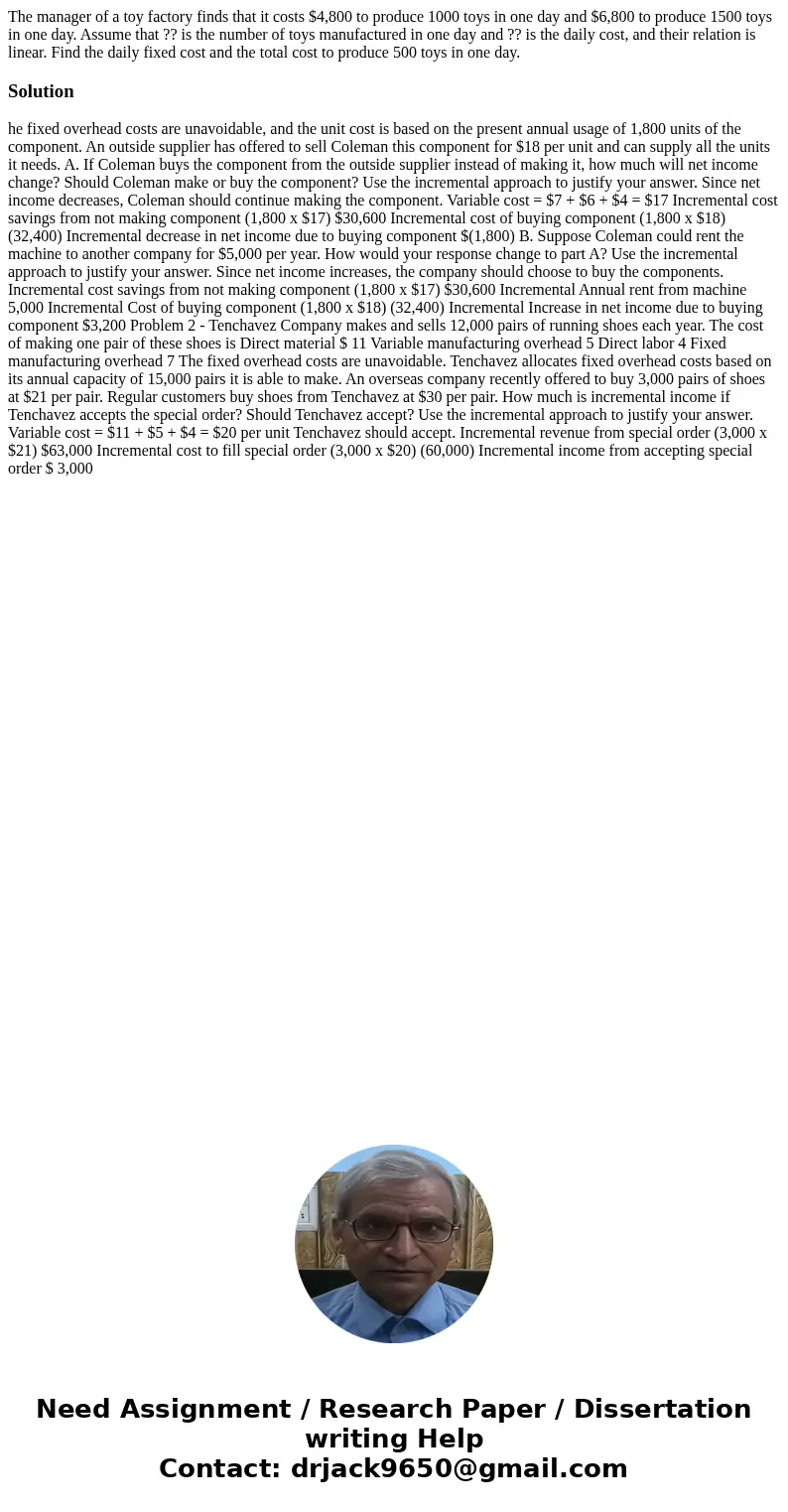The manager of a toy factory finds that it costs 4800 to pro
The manager of a toy factory finds that it costs $4,800 to produce 1000 toys in one day and $6,800 to produce 1500 toys in one day. Assume that ?? is the number of toys manufactured in one day and ?? is the daily cost, and their relation is linear. Find the daily fixed cost and the total cost to produce 500 toys in one day.
Solution
he fixed overhead costs are unavoidable, and the unit cost is based on the present annual usage of 1,800 units of the component. An outside supplier has offered to sell Coleman this component for $18 per unit and can supply all the units it needs. A. If Coleman buys the component from the outside supplier instead of making it, how much will net income change? Should Coleman make or buy the component? Use the incremental approach to justify your answer. Since net income decreases, Coleman should continue making the component. Variable cost = $7 + $6 + $4 = $17 Incremental cost savings from not making component (1,800 x $17) $30,600 Incremental cost of buying component (1,800 x $18) (32,400) Incremental decrease in net income due to buying component $(1,800) B. Suppose Coleman could rent the machine to another company for $5,000 per year. How would your response change to part A? Use the incremental approach to justify your answer. Since net income increases, the company should choose to buy the components. Incremental cost savings from not making component (1,800 x $17) $30,600 Incremental Annual rent from machine 5,000 Incremental Cost of buying component (1,800 x $18) (32,400) Incremental Increase in net income due to buying component $3,200 Problem 2 - Tenchavez Company makes and sells 12,000 pairs of running shoes each year. The cost of making one pair of these shoes is Direct material $ 11 Variable manufacturing overhead 5 Direct labor 4 Fixed manufacturing overhead 7 The fixed overhead costs are unavoidable. Tenchavez allocates fixed overhead costs based on its annual capacity of 15,000 pairs it is able to make. An overseas company recently offered to buy 3,000 pairs of shoes at $21 per pair. Regular customers buy shoes from Tenchavez at $30 per pair. How much is incremental income if Tenchavez accepts the special order? Should Tenchavez accept? Use the incremental approach to justify your answer. Variable cost = $11 + $5 + $4 = $20 per unit Tenchavez should accept. Incremental revenue from special order (3,000 x $21) $63,000 Incremental cost to fill special order (3,000 x $20) (60,000) Incremental income from accepting special order $ 3,000
 Homework Sourse
Homework Sourse